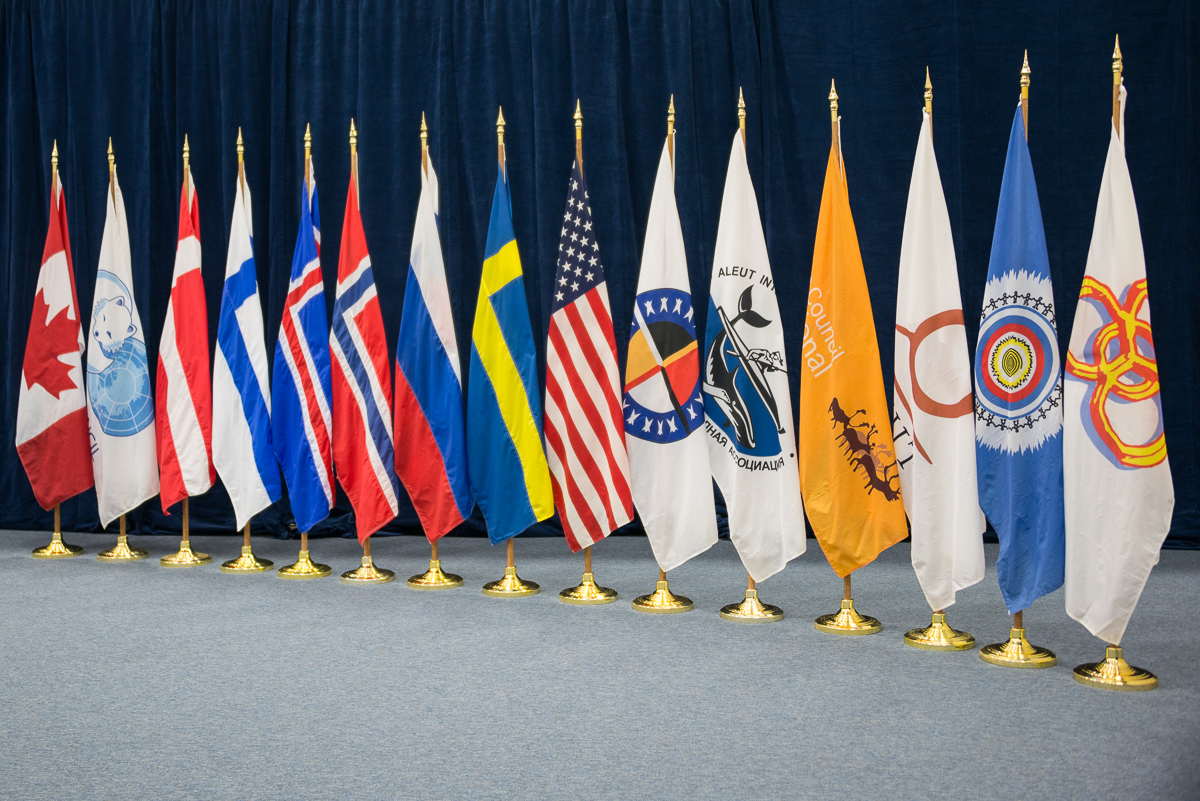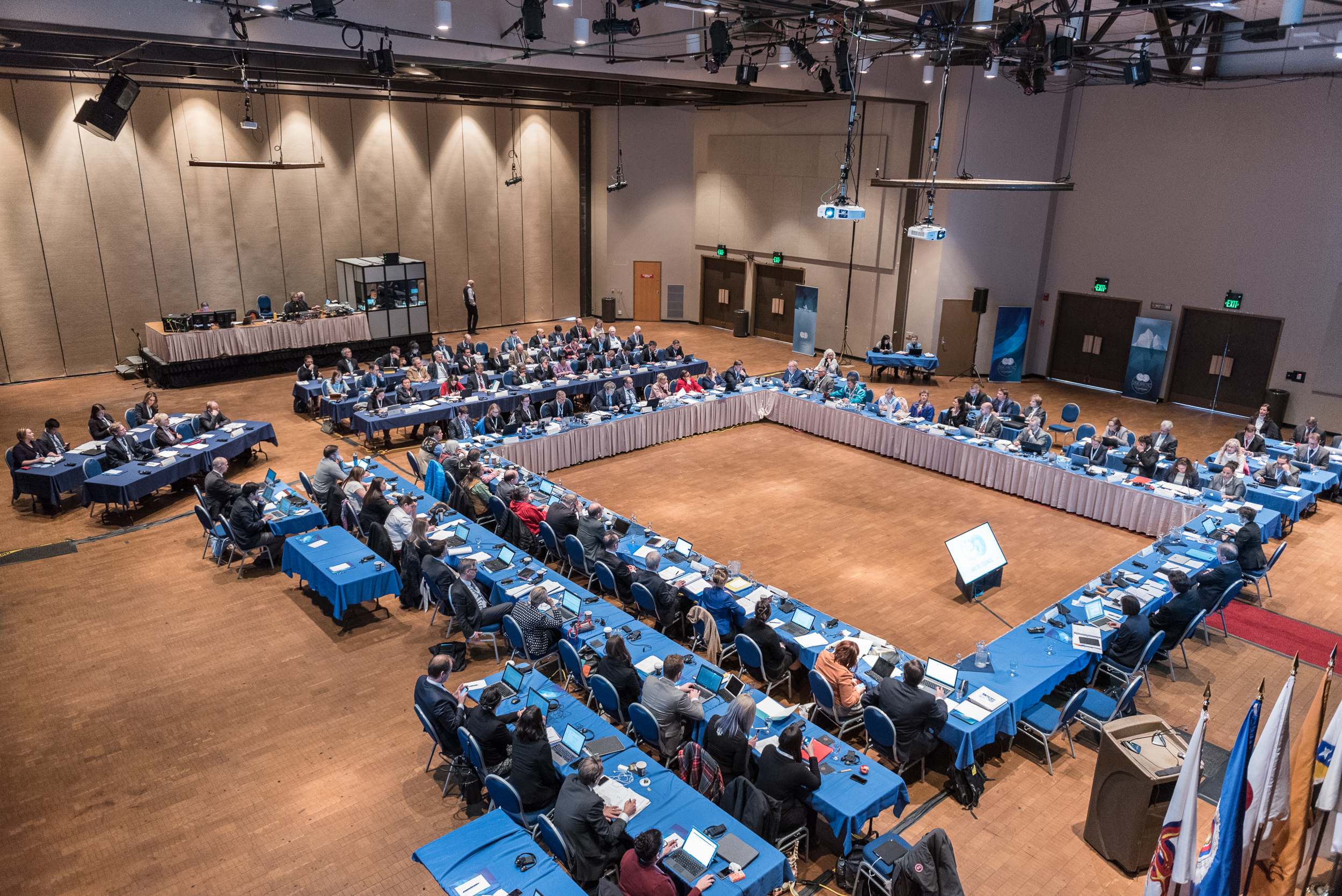Finland prepares to take over Arctic Council leadership — and climate leadership — from US

When the Arctic Council leadership passes from the United States to Finland in May, will President Donald Trump and his denial of climate change pose problems for the eight-nation body and its work to protect the circumpolar environment?
Probably not, says a Finnish official involved in the Arctic Council.
For example, a spirit of Arctic partnership in the council has prevailed despite seething global tensions over Russia’s annexation of Crimea, its role in Ukraine unrest and its military actions in support of Syria’s Assad regime, said René Söderman, a senior adviser for Arctic affairs at the Finnish foreign ministry and one of the leaders of the Finnish delegation to the Arctic Council.
Those factors “could all affect Arctic cooperation, but they haven’t,” Söderman said. The United States and Russia have put aside the differences they have on non-Arctic issues, he said. “We feel that the U.S. has been very pragmatic and the Russians have been very cooperative within the Arctic Council,” he said.
Such Arctic cooperation will likely continue under the Trump administration, he said. The Arctic nations have common interests in promoting environmental protection, sustained development and better living conditions for people in the Arctic, he said.
“Those issues don’t know any borders,” he said.

(Linnea Nordström / Arctic Council Secretariat)
Söderman spoke during a break during this week’s three-day meeting in Juneau of the Arctic Council’s Senior Arctic Officials. It is one of the last official Arctic Council events in the two-year U.S. chairmanship term, which — under the leadership of the Obama administration — placed heavy emphasis on addressing Arctic climate change.
Finland’s chairmanship plan does the same.
One high priority in the Finnish program is the 2015 Paris climate agreement and figuring out how the Arctic nations will abide by it and take action to accomplish its goals.
[The Arctic Council deserves a Nobel Peace Prize]
Trump has vowed, at various times, to pull the United States out of the Paris Agreement. But Söderman said he is not worried about that happening soon.
“The U.S., like Finland and all of the other countries in the Arctic Council, are signatories and have ratified the climate accord,” he said. Once in the agreement, a country is bound to it, at least for the immediate future, he said. “You cannot get out of the climate agreement. It doesn’t happen overnight.”
Still, it remains unclear how Trump’s rhetoric will translate into action on climate change, an issue “of the utmost importance” to the Arctic nations, Söderman said.
“We don’t know the U.S. climate policy yet. Nobody knows,” he said.
Climate policy notwithstanding, one legacy of the U.S. chairmanship will endure for at least another two years. Finland is following the U.S. lead and has set up its own Arctic Council host committee, a group similar to the Alaska Arctic Council Host Committee that organized and coordinated events throughout the U.S. chairmanship.
In the past, he said, the Arctic Council has been supported by local hosts only for individual events, said Nils Andreassen, executive director of the Anchorage-based Institute of the North. The Alaska host committee, which the Institute of the North heads, is something new. It has taken a more expansive role, coordinating and organizing public outreach events and acting as a sort of an Alaska ambassador for communicating Alaska perspectives.
“This was an innovation,” said Andreassen, who has spent much of the past week taking international visitors to Juneau cultural, historic and business sites.
The Alaska Arctic Council Host Committee has one big job remaining before the end of the U.S. chairmanship. It has organized a wide-ranging “Week of the Arctic” program to be held in Fairbanks and Anchorage on May 8 through 14 in conjunction with the Arctic Council ministerial meeting.
About 1,000 people are expected to attend the ministerial meeting and associated events scheduled throughout the week in Fairbanks, and perhaps another 500 to 1,000 will take part in related events in Anchorage, Andreassen said.
The events range from panel discussions and workshops in Fairbanks on climate science and maritime issues to an Arctic film festival, dance party and arts and crafts expo in Anchorage. While the Fairbanks program tilts more to policy-focused events, there was a deliberate effort to organize cultural and celebratory events in Anchorage that might attract a different group of people, he said. “That was the goal — live it up a little,” he said.
Once the chairmanship passes to Finland, the Alaska host committee expects to transform into an advisory organization to represent Alaska’s Arctic interests, Andreassen said.